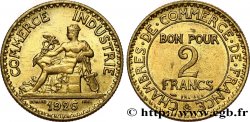fme_966389 - III REPUBLIC Médaille religieuse, la Rédemption
100.00 €(Approx. 107.00$ | 84.00£)
Quantity
Add to your cart

Type : Médaille religieuse, la Rédemption
Date: (1901)
Metal : bronze
Diameter : 79,5 mm
Orientation dies : 12 h.
Engraver DUPRÉ Georges (1869-1909)
Weight : 155,94 g.
Edge : lisse + corne BRONZE
Puncheon : corne BRONZE
Coments on the condition:
Patine marron hétérogène avec des taches d’oxydation. Quelques points d’usure
Obverse
Obverse legend : ANÉPIGRAPHE.
Obverse description : Saint Joseph agenouillé à droite embrassant les pieds de l’enfant Jésus tenu à bout de bras par la Vierge Marie, tous deux auréolés ; à gauche un autel sur lequel brûle un feu, à droite des moutons; signé : G. DUPRE.
Reverse
Reverse legend : O CRVX AVE / SPES VNICA.
Reverse description : Saint Jean, vêtu d'une peau de bête en lambeaux, à demi agenouillé à droite devant un autel, tenant un crucifix au-dessus d'une Bible ; du lierre court sur l’autel avec l'inscription en deux lignes ; paysage agricole à l'arrière-plan; signé : G. DUPRE.
Commentary
Médaille montée avec un cerclage de métal, avec bélière : 79,50 mm , avec cerclage sans bélière : 74,5 mm, sans cerclage ni bélière : 72,5 mm.
Georges Dupré, né à Saint-Étienne le 24 octobre 1869 et mort à Paris en juin 1909, est sculpteur et graveur-médailleur français. Il a été l'élève d'Oscar Roty et de Gabriel-Jules Thomas. Il est membre de la Société des artistes français depuis 1902 ou il obtint une mention honorable au Salon des artistes français en 1893. Il décroche le Premier Grand Prix de Rome de gravure en médailles et pierres fines en 1896.
Au Salon de peinture et de sculpture, il obtient la médaille de troisième classe en 1899, la médaille de deuxième classe en 1901, puis la médaille de première classe en 1904.
Georges Dupré, né à Saint-Étienne le 24 octobre 1869 et mort à Paris en juin 1909, est sculpteur et graveur-médailleur français. Il a été l'élève d'Oscar Roty et de Gabriel-Jules Thomas. Il est membre de la Société des artistes français depuis 1902 ou il obtint une mention honorable au Salon des artistes français en 1893. Il décroche le Premier Grand Prix de Rome de gravure en médailles et pierres fines en 1896.
Au Salon de peinture et de sculpture, il obtient la médaille de troisième classe en 1899, la médaille de deuxième classe en 1901, puis la médaille de première classe en 1904.








 Report a mistake
Report a mistake Print the page
Print the page Share my selection
Share my selection Ask a question
Ask a question Consign / sell
Consign / sell
 Full data
Full data









